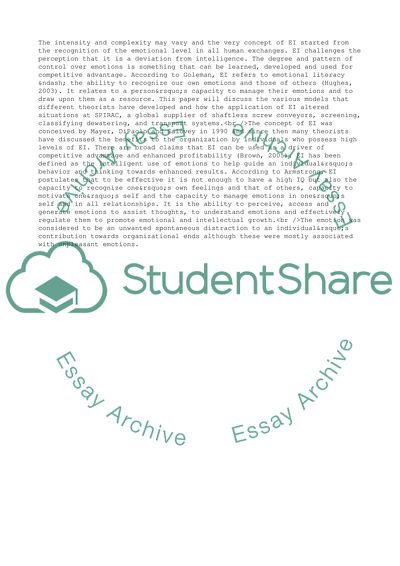Cite this document
(The Concept of Emotional Intelligence Report Example | Topics and Well Written Essays - 1750 words, n.d.)
The Concept of Emotional Intelligence Report Example | Topics and Well Written Essays - 1750 words. https://studentshare.org/management/1541140-emotional-intelligence-apply-theories-concepts-to-problems-of-an-organisation-where-ei-is-absent
The Concept of Emotional Intelligence Report Example | Topics and Well Written Essays - 1750 words. https://studentshare.org/management/1541140-emotional-intelligence-apply-theories-concepts-to-problems-of-an-organisation-where-ei-is-absent
(The Concept of Emotional Intelligence Report Example | Topics and Well Written Essays - 1750 Words)
The Concept of Emotional Intelligence Report Example | Topics and Well Written Essays - 1750 Words. https://studentshare.org/management/1541140-emotional-intelligence-apply-theories-concepts-to-problems-of-an-organisation-where-ei-is-absent.
The Concept of Emotional Intelligence Report Example | Topics and Well Written Essays - 1750 Words. https://studentshare.org/management/1541140-emotional-intelligence-apply-theories-concepts-to-problems-of-an-organisation-where-ei-is-absent.
“The Concept of Emotional Intelligence Report Example | Topics and Well Written Essays - 1750 Words”. https://studentshare.org/management/1541140-emotional-intelligence-apply-theories-concepts-to-problems-of-an-organisation-where-ei-is-absent.


